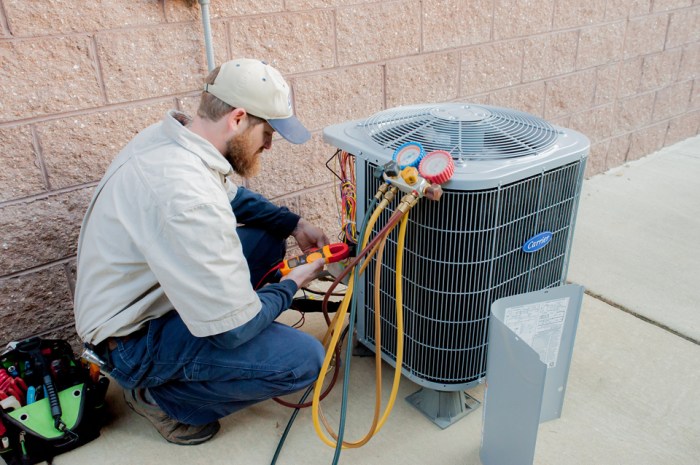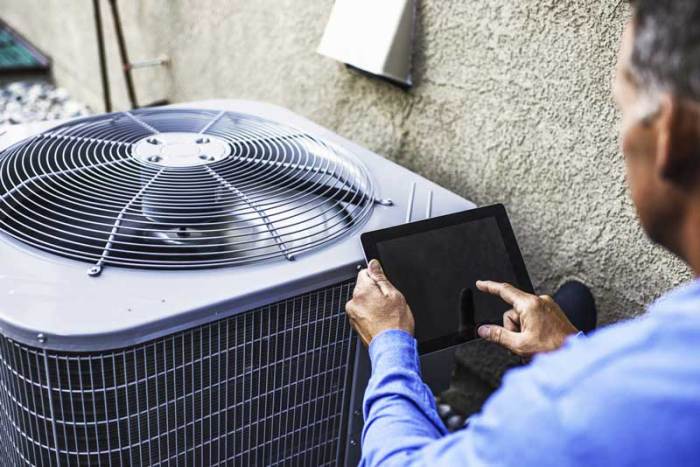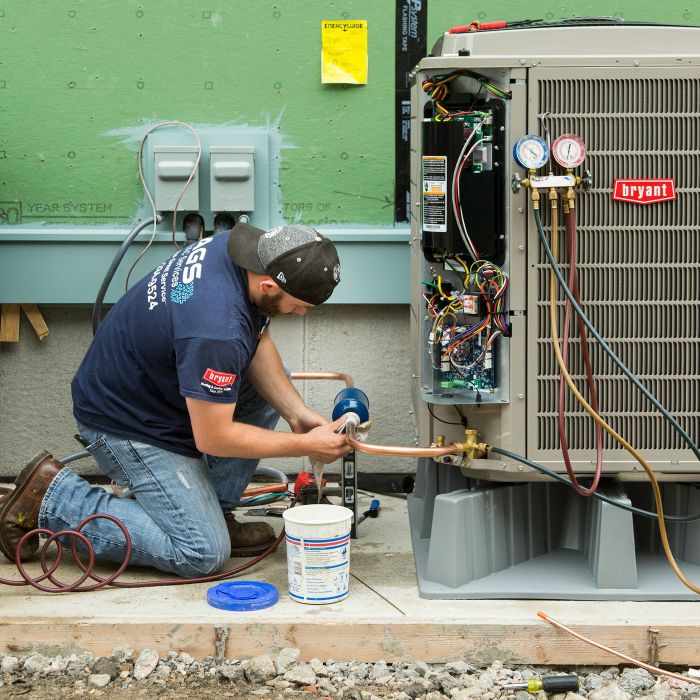As HVAC residential service becomes increasingly essential in modern homes, this guide aims to delve into the intricacies of HVAC systems, maintenance, repair services, and installation. Providing valuable insights and practical tips, it seeks to empower homeowners in navigating the world of residential HVAC services with confidence and ease.
Overview of HVAC Residential Service

Heating, Ventilation, and Air Conditioning (HVAC) systems play a crucial role in maintaining a comfortable and healthy indoor environment in residential settings. These systems help regulate temperature, humidity, and air quality, ensuring that homeowners can live in a safe and pleasant atmosphere.
Typical services offered by HVAC residential service providers include installation, maintenance, repair, and replacement of HVAC systems. These professionals are trained to assess the specific needs of each home and provide tailored solutions to ensure optimal performance and efficiency of the HVAC system.
Common HVAC Issues Faced by Homeowners
- Poor Air Quality: Dust, pollen, and other contaminants can accumulate in the HVAC system, leading to poor indoor air quality and potential health issues.
- Inadequate Heating or Cooling: Improperly sized or malfunctioning HVAC systems may struggle to maintain the desired temperature, resulting in discomfort for homeowners.
- Leaking Ductwork: Damaged or leaky ductwork can lead to energy waste and reduced efficiency of the HVAC system, causing higher utility bills.
- Thermostat Problems: Inaccurate or faulty thermostats can disrupt the HVAC system's operation, leading to temperature inconsistencies and inefficiencies.
HVAC System Maintenance
Regular maintenance of HVAC systems in homes is crucial for ensuring optimal performance, energy efficiency, and longevity. Neglecting maintenance can lead to costly repairs, decreased efficiency, and even system breakdowns at inconvenient times.
Importance of Regular Maintenance
Regular maintenance helps in identifying and addressing small issues before they escalate into major problems, saving homeowners money in the long run. It also ensures that the system operates efficiently, reducing energy consumption and lowering utility bills. Additionally, routine maintenance extends the lifespan of the HVAC system, delaying the need for expensive replacements.
Key Components of Routine Maintenance
- Changing air filters regularly to maintain indoor air quality and prevent strain on the system.
- Cleaning and inspecting the evaporator and condenser coils to improve efficiency.
- Checking and adjusting refrigerant levels to ensure optimal cooling performance.
- Inspecting and lubricating moving parts to reduce friction and wear.
- Testing thermostat settings and calibrating if necessary for accurate temperature control.
DIY Maintenance Tasks versus Professional Services
While homeowners can perform some maintenance tasks on their own, such as changing air filters and keeping the outdoor unit clear of debris, certain tasks require professional expertise. It is advisable to schedule an annual maintenance service with a qualified HVAC technician to thoroughly inspect, clean, and tune up the system.
Professional services can identify potential issues early on and ensure that the system operates at peak performance.
HVAC Repair Services
When it comes to HVAC systems in residential settings, repair services play a crucial role in ensuring the system operates efficiently and effectively. Timely repairs can prevent further damage and costly replacements in the future.
Diagnosing HVAC Issues
One of the primary tasks of HVAC technicians is diagnosing issues with residential HVAC systems. This involves a thorough inspection to identify the root cause of the problem before proceeding with the necessary repairs.
Common Repair Services
- Repairing or replacing faulty components such as thermostats, motors, or capacitors.
- Fixing refrigerant leaks and recharging the system to ensure optimal cooling or heating.
- Cleaning or replacing air filters to improve indoor air quality and system efficiency.
- Addressing electrical issues to prevent safety hazards and system malfunctions.
Importance of Timely Repairs
Timely HVAC repairs are essential to prevent minor issues from escalating into major problems. Ignoring repairs can lead to decreased system efficiency, higher energy bills, and even complete system failure. By addressing issues promptly, homeowners can prolong the lifespan of their HVAC system and ensure their comfort year-round.
HVAC Installation in Residential Settings

When it comes to installing a new HVAC system in a residential property, there are several important steps to consider. From choosing the right system to the actual installation process, each step plays a crucial role in ensuring optimal performance and efficiency.
Considerations for Choosing the Right HVAC System
Before installing a new HVAC system in a residential property, it is essential to consider various factors to ensure the system meets the specific needs of the home. Some key considerations include the size of the property, the climate in the region, energy efficiency ratings, and the budget of the homeowner.
Types of HVAC Systems Suitable for Residential Use
- Split Systems:Split systems are the most common type of HVAC system used in residential settings. They consist of an outdoor unit that houses the condenser and compressor, and an indoor unit that contains the evaporator coil. This system is ideal for homes with existing ductwork.
- Ductless Mini-Splits:Ductless mini-split systems are a great alternative for homes without ductwork. These systems consist of an outdoor compressor unit connected to one or more indoor air-handling units. They offer flexibility in zoning and can be a more energy-efficient option.
- Heat Pumps:Heat pumps are another popular choice for residential HVAC systems. They can provide both heating and cooling by transferring heat between the indoor and outdoor units. Heat pumps are known for their energy efficiency and are a great option for moderate climates.
Conclusion

In conclusion, this guide has shed light on the crucial aspects of HVAC residential service, emphasizing the significance of regular maintenance, timely repairs, and informed decision-making when it comes to HVAC systems in residential settings. Armed with this knowledge, homeowners can ensure optimal comfort and efficiency in their homes.
Question & Answer Hub
What are the signs that indicate the need for HVAC system maintenance?
Common signs include reduced airflow, strange noises, uneven heating or cooling, and increased energy bills.
Is DIY maintenance recommended for HVAC systems?
While basic tasks like changing filters can be done by homeowners, it's advisable to have a professional conduct comprehensive maintenance at least once a year.
How can homeowners choose the right HVAC system for their property?
Factors like property size, climate, energy efficiency ratings, and budget play a crucial role in selecting the most suitable HVAC system.
What are the advantages of ductless mini-split HVAC systems?
Ductless mini-split systems offer flexibility, energy efficiency, zoning capabilities, and easy installation compared to traditional HVAC systems.
